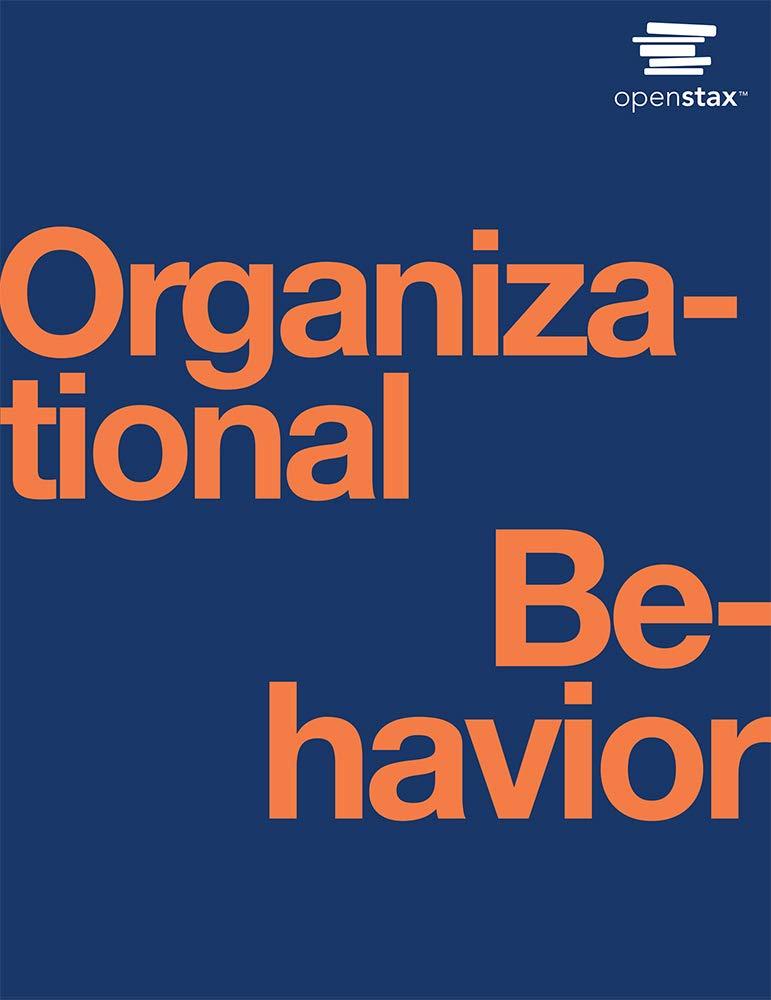When it comes to decision-making, ethical dilemmas require particular care. Because managers make many decisions, it should
Question:
When it comes to decision-making, ethical dilemmas require particular care. Because managers make many decisions, it should not be surprising that some of those decisions will have ethical implications. With multiple stakeholders to consider, sometimes what is best for one group of stakeholders is not what is best for others. I talked to Rob Ault about his experiences with ethical dilemmas over the course of his career. Rob has been in managerial roles for over 25 years, since he was 19 years old. He told me that he had experienced a number of ethical dilemmas in that time.
Rob has spent most of his career working for for-profit organizations, and for about half of that time he has worked in a union environment. What he has found most frustrating, regardless of environment, was when it was clear to him what was right, but what was right conflicted with what his boss was telling him to do. This included a situation in which he felt an employee should be fired for misbehavior (but wasn’t), as well as situation in which he was asked to fire someone undeservedly. What we mostly talked about, though, was his process. How did he go about making decisions in these challenging situations?
Rob clearly stated that his approach to these situations has changed with experience. What he did early in his career is not necessarily what he would do now. He said that it takes experience and some maturity to recognize that, as a leader, the decisions you make affect other people’s lives. He also explained that a starting point for the decision-making process is always a recognition of the fact that you have been hired to generate a benefit for your company. So a manager’s decisions need to come from the perspective of what is going to be in the best long-term interest of the organization (in addition to what is morally right). This isn’t always easy, because short-term consequences are much easier to observe and predict.
I asked Rob who he talked to prior to making decisions in situations with an ethical component. Rob told me that he felt one of the most important things you should do as a leader is to intentionally create and build relationships with people you trust in the organization. That way you have people you know you
can talk to when difficult situations come up. He was very clear that you should always talk to your boss, who will tend to have a broader understanding of what is going on in the context of the larger organization. He also told me that he liked to talk to his father, who happened to work in human resource management for a large Fortune 500 organization. His father was always helpful in providing the perspective of how things were likely to play out long-term if one person was allowed to bend the rules. Rob realized eventually that the long-term consequences of this were almost always negative: once one person is allowed to misbehave, others find out about it and realize that they can do the same thing without repercussions. Rob also seeks out the opinions of other individuals in the organization before reaching decisions with an ethical component; he told me that when he worked in a union environment, he tried to make sure he had a good relationship with the union steward, because it was helpful to get the perspective of someone who was committed to the side of the employee.
The biggest ethical dilemma Rob faced was one that he actually couldn’t talk to me about. He disagreed with what he was being asked to do, and when it was clear that he had no other choice in the matter, he quit his job rather than do something he felt wasn’t right. He accepted a severance package in exchange for signing a nondisclosure agreement, which is why he can’t share any details . . . but it was clear from our conversation that he feels he made the right choice. That particular ethical dilemma makes it clear how challenging managerial decision-making can sometimes be.
Discussion Questions
1. If you were faced with an ethical dilemma, from whom would you seek advice?
2. Describe some decisions that might be good for an organization’s profitability in the short-term, but bad for the organization in the long-term.
3. What factors would you take into consideration if you were thinking about leaving your job rather than do something unethical?
Step by Step Answer:






